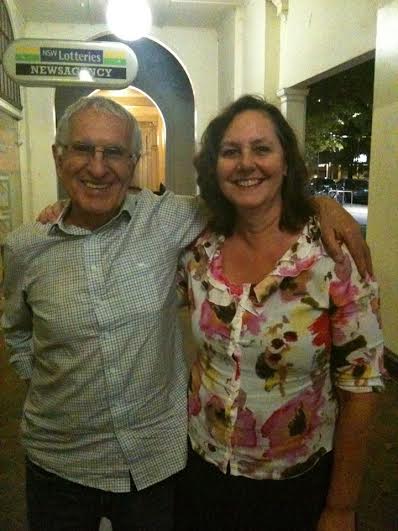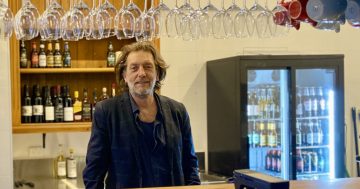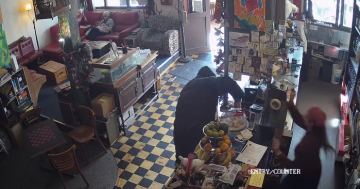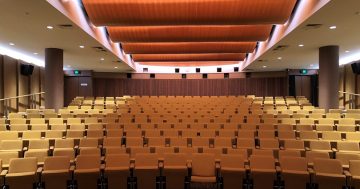One of Canberra’s most loved performance venues announced last week that it would cease its operations indefinitely. This week, Smith’s Alternative is in receivership.
The cosy venue in the Melbourne Building has undergone many machinations throughout the past three decades. From its slow transformation from a bookshop to an arts hub, it has always catered for the creative Canberran and a common theme has prevailed.
Whether it be the books on the shelves, the singers in the night, or the general public revelry, Smith’s has been a cultural vanguard of progressive and open-minded thought. On the cultural fringe of politics, feminism, sex, lesbian and gay issues, and human rights, Smith’s has been a Canberran institution.

In 2013 Executive Director of the Council of Small Business of Australia Peter Strong sold Smith’s Alternative Bookshop to well-known arts figures Domenic Mico and Jorian Garnder, and so Smith’s Alternative was born. The opening night was a fantastic festive evening. Former chief minister Katy Gallagher delivered an opening speech and was cheekily awarded a pair of nipple tassels which she graciously accepted. Gallagher remarked, “I can’t think of a better partnership that Domenic and Jorian. I wish you all the best.”
After makeover that opened up the space to for a stage and audience, Smith’s Alternative quickly became an artistic centre that attracted local and touring performers, and Canberra’s arts community began to find a new home. Smith’s purchased a grand piano, served good wine, and audience numbers were growing.

Much of Canberra’s media has claimed that Smith’s financial failure is due to the Abbott government’s cuts, but the problem is obviously more complex than that.
Unfortunately, the business was unable to capitalise on the morning coffee market, and as with most new small businesses cash flow was slow. It also never convinced its clientele that that it was a good place to eat. This meant long hours for little gain. Smith’s went from opening from 7:30am then 11am, and then to 4pm.
Jorian and Domenic both shared a great deal of artistic acumen. Yet due to irreconcilable differences, Jorian was forced out of the business within a year.
In response to Smith’s closure Gardener had this to say:
‘I am of course very disappointed to see Smiths Alternative close. I put in a great deal of effort to help turn it into the hub of activity that it became – musically, theatrically, socially. It is also something that Canberra needs more of. The reality of course is that venue’s, especially in the middle of the CBD have high operating costs and being the sort of place it was, if people didn’t eat and drink, then the business could not stay viable. The community needs to understand that. They need to know that if they want these sort of hubs to stay successful they need to offer them the most support they can. It’s not the government’s job to help support business in such a way. However, unlike other cities like Melbourne or Sydney where there is the population and hunger for such venues to stay alive, perhaps there is a small way for government to play [its] part. I congratulate all those prior and post my departure at Smith’s who help make it the wonderful place it was…and you just never know when another one might rise from the ground again.”
Smith’s was an exciting new venture for Jorian, and it was a loss for all of us that the partnership did not survive.

In place of Jorian, Mico partnered with Meryl Hinge who has worked tirelessly to manage the venue to the best of her ability. Hinge endeavoured to foster good relationships with local artists and noted that she is particularly proud that Smith’s became a venue that supported local female artists.
“I’m pretty exhausted and drained by the entire venture, but it has really been inspiring to see the public support that we have received over the past week.”
Both Domenic and Meryl have received in excess of $3,000 worth of parking tickets over the past year. Meryl says that it became impossible to find a park, and the nature of a performance venue required them to load and unload equipment. By the time they had unloaded a car they would return to a parking inspector writing them a ticket.
Hinge also contends that people simply didn’t come to the venue because there was no place to park, and whether people like it or not, Canberrans drive cars.
Hinge is now unemployed.
One constant in the story of Smith’s is sound engineer Bevan Noble. Canberran singer/songwriter Tom Woodward remarked for this article, “Along with the always enthusiastic Smith’s audience, Bevan, the house sound-dude, made performing at Smiths a unique pleasure in the world of live gigging.” These sentiments are unanimously echoed by Canberra musicians.

The last word obviously has to go to Domenic. His frustration and sadness is palpable.
“You can plan for anything but you can’t plan for government stupidity. I’ve been involved in art all my life, and the only truly vibrant time for the arts in Canberra was the 80s. We had freedom then. Since then, everything has become regulated to the point where people who try and make their own way simply can’t.”
Domenic argues that Canberra is addicted to the public purse and that businesses like his own fail because he is forced to compete with initiatives that are subsidised by the government. Although he has asked to speak with government ministers, no minister has returned his calls.
Two weeks ago, ACT public servants arrived at Smith’s to measure the sound due to a noise complaint being made by a member of the public. Smith’s was four decibels over the legal limit (with the door open). They were cautioned that if another complaint was made it would result in Smith’s being issued with a $1,000 fine – such are the ‘fun police’ of the ACT.
Insult was added to injury when Greens minister Shane Rattenbury inadvertently made reference to the ‘fun police’ in a political forum in which I participated at Smith’s last week – Domenic was not very happy.
There are too many examples of government regulations stifling small business for me to mention here. For those artists in Canberra who move away from the public purse, it becomes profoundly clear that a professional future in the arts almost impossible.
As an artist myself, the majority of my income has been created outside of the ACT, indeed I have left the ACT on a number of occasions just to find work.
While public money is being wasted on thought bubbles and pointless regulatory bodies, people are losing their livelihoods, and according to one of the most respected artists of Canberra, Domenic Mico, Canberra is losing its art and creativity at an alarming rate.





















